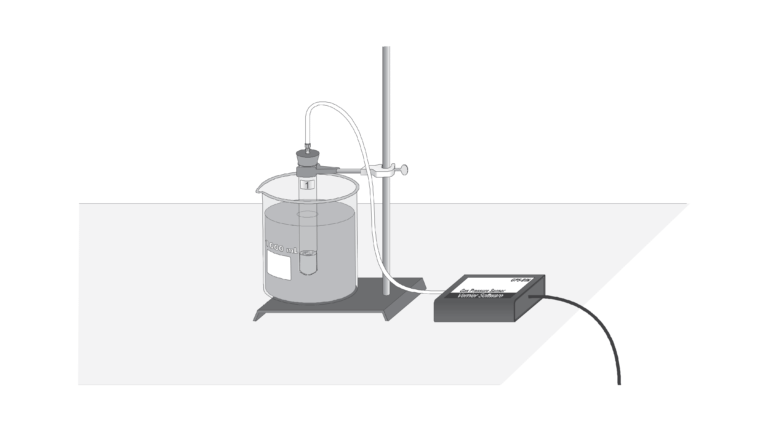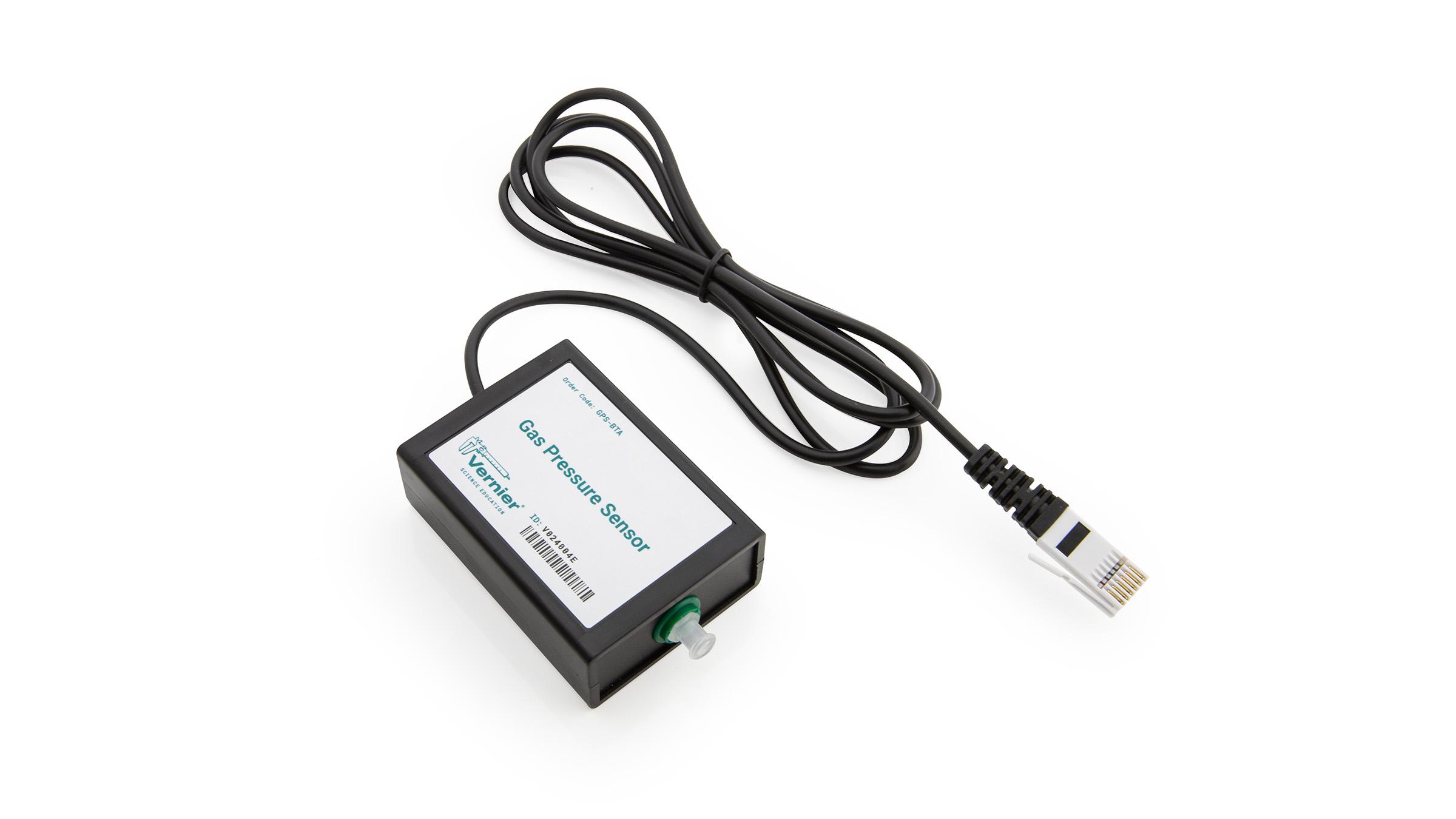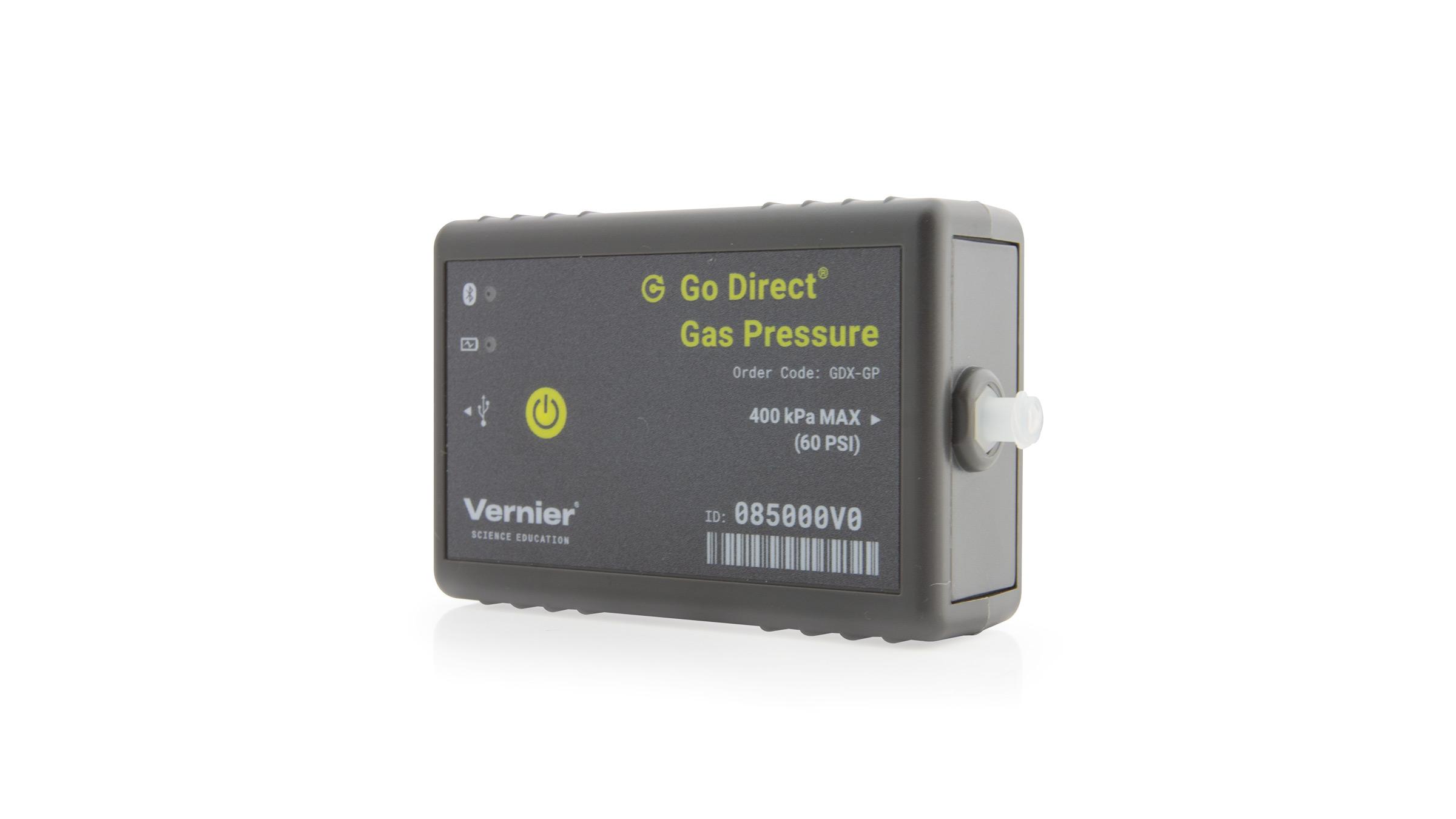
Introduction
Cell respiration refers to the process of converting the chemical energy of organic molecules into a form immediately usable by organisms. Glucose may be oxidized completely if sufficient oxygen is available, by the following equation:
All organisms, including plants and animals, oxidize glucose for energy. Often, this energy is used to convert ADP and phosphate into ATP.
To measure the rate of cell respiration, the pressure change due to the consumption of oxygen by peas will be measured. It is not possible to directly measure pressure changes due to oxygen, since the pressure sensor measures the total pressure change. Carbon dioxide is produced as oxygen is consumed. The pressure due to CO2 might cancel out any change due to the consumption of oxygen. To eliminate this problem, a chemical will be added that will selectively remove CO2. Potassium hydroxide, KOH, will chemically react with CO2 by the following equation:
This will allow you to monitor pressure changes exclusively due to the consumption of oxygen.
Objectives
In this experiment, you will
- Measure gas production.
- Study the effect of temperature on cell respiration.
- Determine whether germinating peas and non-germinating peas respire.
- Compare the rates of cell respiration in germinating and non-germinating peas.
Sensors and Equipment
This experiment features the following sensors and equipment. Additional equipment may be required.
Option 2

Ready to Experiment?
Ask an Expert
Get answers to your questions about how to teach this experiment with our support team.
- Call toll-free: 888-837-6437
- Chat with Us
- Email support@vernier.com
Purchase the Lab Book
This experiment is #11C of Biology with Vernier. The experiment in the book includes student instructions as well as instructor information for set up, helpful hints, and sample graphs and data.


